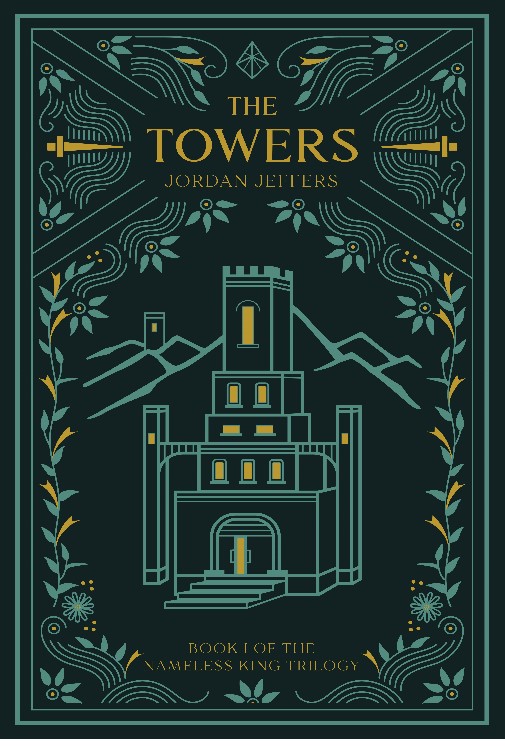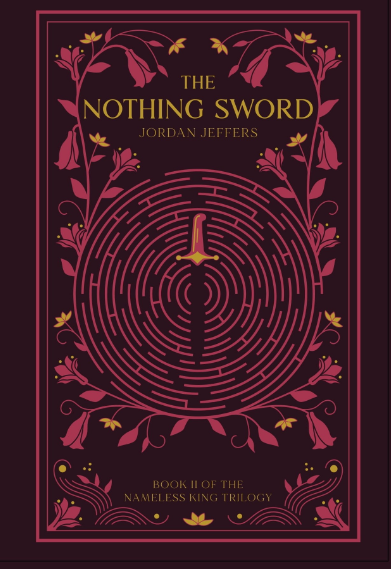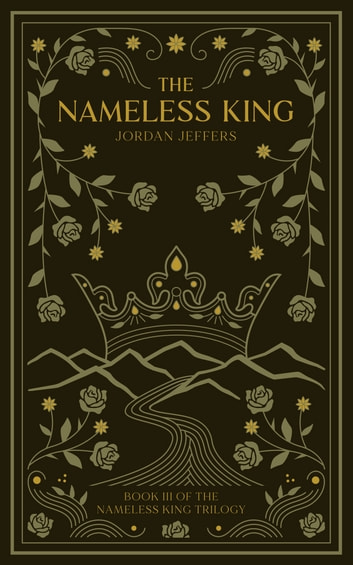As some of you know, I write an occasional column for McSweeney's Internet Tendency, "Speaking for all Christians Exactly Like Me." The column came about as a result of McSweeney's annual contest, which awards ten or so people with an opportunity to write for the site for a year. Today, I'm starting a new series of interviews with the other nine winners (or as many of them as I can track down and get to return my emails).
Ian Orti

My first guest is Ian Orti, author of the McSweeney's column "Any Given Wednesday Afternoon," as well as two books, L (and things fall apart) and The Olive and the Dawn. I've never conducted an interview before, so this is sort of half-interview, half-conversation.
Also, it's about half-serious, half-nonsense, as most of the things I put on this website are. You'll probably figure this out on your own, but my questions and responses are in italics.
The Interview
JJ: We're going to start with the part where I stalk you on the internet and ask related questions. So let's begin with your two books The Olive and the Dawn and L. What do you think is important about those books? Is there anything you regret about them as you look back on them now?
IO: There's nothing I regret about those books because they were written honestly and sincerely at the time. Maybe if I open one and don't like the writing I might cringe a bit.
JJ: I react the same way to a lot of my stories. Actually, it kind of goes in shifts for me. Sometimes I'll read a story I wrote a while ago and be kind of shocked at how good I think it is, then six months or six years later I will read the same story again, and want to throw up a bit at every other sentence.
IO: I think that's par for most writers. Both books came out within 6 months of each other, and I signed book deals for each within the same month. The difference being that my first book, which took ten years to write, came out after my second book, which took a year to write. Is that confusing?
JJ: Not terribly. I understand.
IO: The first book [to be released], The Olive and the Dawn, is a novel dressed as a short story collection. It's about a somewhat-damaged-goods individual who thinks he's found a glitch in the human design and thinks he can outsmart God. Of course he's totally wrong, but that doesn't ruin the story at all. It's really about the grey zone - the non-space after trauma where there doesn't seem to be any past, present, or future.
The second book, L, is probably closer to a fictocritical essay disguised as a very slow moving experimental novel about an old man in a shitty marriage who rents a flat to an odd woman before both of their worlds come apart.
JJ: Was this "dressing" for The Olive and the Dawn important to getting it published? Like, did the mere fact that it was labeled "Short Story Collection" instead of "Novel" make the publisher want to invest in it? Or was that just happenstance?
IO: The dressing was actually somewhat necessary for the publisher since they were looking for a short story collection. But there are recurring characters and a single narrative and chronological arc for them. As a story collection it wasn't necessary to bang the reader over the head with the fact that the characters in the different stories were connected, but as a story collection it was also necessary that the stories stood alone as individual elements as well.
JJ: So let me key in on that word "fictocritical," that you used to describe L. I found that while I was in college (I spent six years in and out of creative writing classes) a lot of what I wrote came out as essays disguised as fiction. I would read something by Bakhtin and then write a story trying to illustrate dialogics, or I would muddle my way through Derrida and then muddle my way through a story that was really about how I muddled my way through Derrida. Most of the time these stories were really just ways for me to think through certain difficult concepts, to attempt to get them straight in my head, and writing fiction about them seemed to work better for me than actually writing the research papers about them.
IO: I like the form, relatively new as it is. It's refreshing to read and it's a nice thorn in the side of the literary establishment.
JJ: Also, you seem to think both of these books are sort of disguised as something other than what they are. Why do you think that is?
IO: I think because I enjoy fiction that's a little cryptic. I think both novels are sort of riddles for the reader to piece together -- though doing so is not really necessary either. But I think both invite a second visit back to some pages.
JJ: So how'd you get started writing? For a general audience, that is.
IO: My first-first-first book was a comic book I co-wrote with a friend when I was growing up. It was about an animal with an uncanny resemblance to Bam Bam and a cat which was more like a svelte Garfield. I drew Animal and my friend drew the Cat. It was called Spaz Kat and Animal and it was about two friends that went on intergalactic adventures. Maybe fifteen years after that I studied writing in university or something.
JJ: Why do you think you write?
IO: I write because I can't help it. That's the main reason. The second reason is that I loved how books made me feel and I wanted to be able to do that.
JJ: Who do you think of as your audience? Maybe another way of asking this is, who is your perfect reader?
IO: My perfect audience is one that is more into the way a story is told rather than what story is told. I have a friend who once told a story at a party about his dad getting a good deal on frozen waffles at a supermarket. That's all it was - an old man getting a deal on waffles - but when he told the story he had the whole room wrapped around his fingers. That was an important writing lesson for me.
JJ: Could you say a little more about this waffle story? Like, what was it that your friend did that you think elevated it into something interesting and (possibly) meaningful? And is that similar to what you try to do?
IO: No. It was just the way he told the story. Which is what a successful book comes down to… how well the story it is telling… is told.
JJ: So, besides the waffle story, what's the last book you read that you loved, and why did you love it?
IO: It was a long, and I mean a very long time after finishing university that I could read a novel and enjoy it. Studying literature nearly ruined books for me. Then about three years ago I moved to the coast of Ecuador for six months and brought a stack of books. A lot of classics. But the one that brought me back to loving books again was Peter Pan. I know. I shouldn't admit that. But it was.
JJ: That's sort of fascinating, given your mention of the waffle story, since Barrie has this super peculiar way of turning a phrase, so that they seem deceptively simple, and yet profound, and yet nonsense. The famous location of Neverwhere, "second to the right, and straight on til morning," is like that. Really you could just open a random page of Peter Pan and put your finger down, and you'll find an example. Is that what made you love the book, or was it something else?
IO: I loved that these kids were murderers. I loved that pirates were killing kids. I loved that this was the sort of thing overprotective parents, principals, and child psychologists would probably be fiercely opposed to, and I love that it all came together to form a really beautifully written story that is perfect for children…and at least this adult.
JJ: You once described writers as grown ups who still play with imaginary friends. What did you mean by this?
IO: I don't like meeting writers that I'm a fan of. Writer colleagues are different because you get to know them on deeper levels. But I would never want to meet the writers of the books I loved growing up because if they were dicks it would end my relationship with those books. What this means is that I am all for the celebration of a book, but not its author.
JJ: So the weird thing in what you're saying is that we should separate an author's life from her work, but that you, personally, would have a tough time doing this if you met the author and they were a jerk to you. Am I reading that correctly?
IO: Yes. If I met a writer and he or she were an asshole it would greatly prejudice my reading of their work.
What being an author really boils down to is an adult who plays with imaginary friends. These friends are the characters in the stories you are working on, and they have a real way of affecting your social life and compromising your personal relationships because, as you're working on their stories, they tend to chatter away in your head. And their actions, which occur entirely in your head, are a cause of concern until they hit the page or until the final editing of their actions is complete.
Though I think a mature writer won't let their characters affect them too much, or to be more direct, the fact that you are a writer and working on stuff doesn't give you licence to be an asshole to friends and family. My imaginary friends right now are the characters in the manuscript I'm working on.
JJ: When I was a kid, I had like a couple hundred different toys of plastic knights and mutant turtles and transformers and metal cars etc, etc, and I would spend hours in my room making up different scenarios for them, almost all of which involved a lot of dialogue, allegiance shifting, betrayal, and massive battles.
And I find that my first book, The Towers, is in many ways a (ever so slightly) more sophisticated version of this playing. And there were many times, over the course of writing it, that my wife had to pull me back, gently, from these worlds, and the fake conversations I was having in them. Having something useful to do outside of writing, which for me is prayer and church and service, keeps me more sane and less of a jerk than I would otherwise be.
IO: There is no reason to be a bastard to anyone. That's what it comes down to. The writing process invites a cast of all sorts of individuals into your head. If we didn't have the means to write down their actions, or if writing fiction were not culturally accepted, we would surely be admitted to hospitals. It's up to the writer to be in control of the traffic inside their head and not take it out on those around them when their time with them is interrupted. In other words, being a temperamental writer who lashes out at those around you when they get in the way of your writing doesn't make you interesting. It just makes you an asshole.
JJ: Let's talk a little bit about your column specifically. Why did you decide to include images in your column? Is that something you do a lot in your work?
IO: This column was so accidental and a direct result of just being out for walks on slow days out there in the world with a camera. I've never considered myself a photographer or a photo-essayist and by not doing so, I think I was able to exercise some fun with the genre. The essays you see in McSweeney's are exactly that. Some of the things are true, some are fabrications. But at the end of the essay, hopefully some kind of truth emerges.
JJ: This is one of those areas that I feel like a lot of people who are not writers are confused by. I don't know if this was important in Canada, but there was a massive poop-storm in the US over James Frey's A Million Little Pieces, where basically people found out that some of the stuff he wrote didn't actually happen. Oprah gave him a scolding. Yet this is something that every person who has ever written a memoir (or life writing, or whatever you want to call it) does. You take elements of real things and blend them with fiction, or exaggerate certain details, to get to something from which, as you say, some kind of truth emerges.
Sometimes I think the outrage over it was simply because people thought they were being lied to and manipulated. Like maybe if Frey had just put "A Mostly True Memoir" on his book cover, everyone would love him still. This is another one of those situations where labeling makes a big impact on how a work is perceived and consumed.
IO: Well, that's genre for you. It's sort of the contract that writers make with the reader. If you tell someone that this is a true story, and it turns out not to be, then it makes you a liar. Embellishment is obviously that grey line between bullshit and the truth. I would prefer not to think of my columns with McSweeney's as walking that grey line without the disappointed audience. Sort of like if Peter Pan were a photojournalist, this might be what you got. Maybe that's a poor description.
JJ: Let's say that somebody you loved was going to enter the McSweeney's column contest next year. What advice would you give them?
IO: Just press send. And maybe field test the column a bit. Actually, always get feedback. Always.
JJ: When you're not working on your column, what do you do? (In terms of work and leisure, that is. Do you have other projects or do you work a day job or moonlight as a jazz pianist, etc?)
IO: I do a lot of small things. I teach and I study. I walk and I nap. I'm learning German, but I'm not sure if that falls into work or leisure. I'm working on another book, and today I spent the day sewing pants for a great suit I found at a second hand shop. Other than that, minor explorations are kind of my expertise.
JJ: So how's Berlin?
IO: I love Berlin, though I am very much off the radar of the oohs and aahhs of Berlin. I have almost no community and almost no friends here which is the opposite of what things were like when I lived in Montreal. I have some park benches, there's a pub I go to once in a while where they know my name, and there are a couple of great English bookstores where they also know my name. If I had to count the people that know me in Berlin outside of my workplace, there are the two people who work at the two bookshops, a bartender, and my friend Arjun. But I see these people probably less than once a month. It's hermetic but I like it.
JJ: So how'd you end up there?
IO: Love, Jordan.
JJ: Ah… The best reason to do anything.
You can find out more about Ian Orti at his website ianorti.com or at The Barnstormer, an online literary sports magazine that Orti co-founded.



